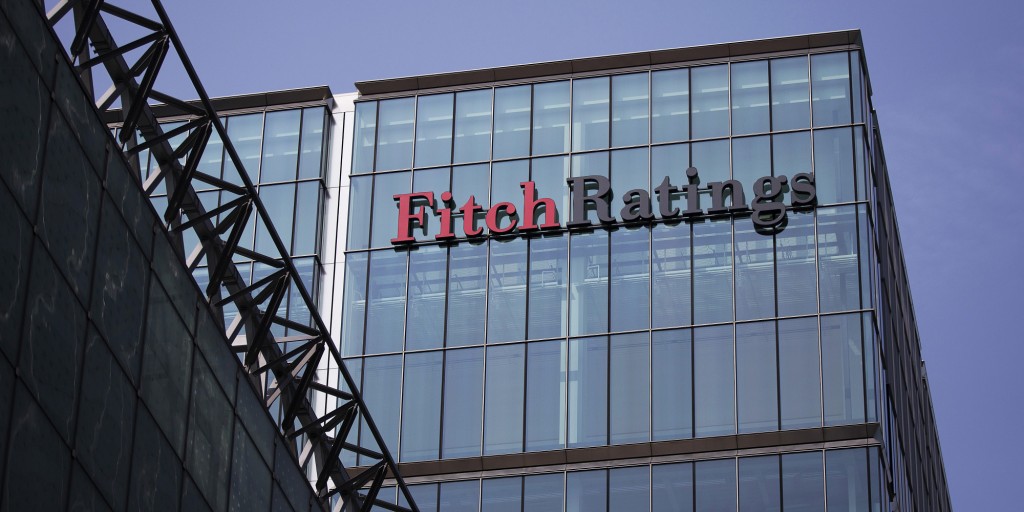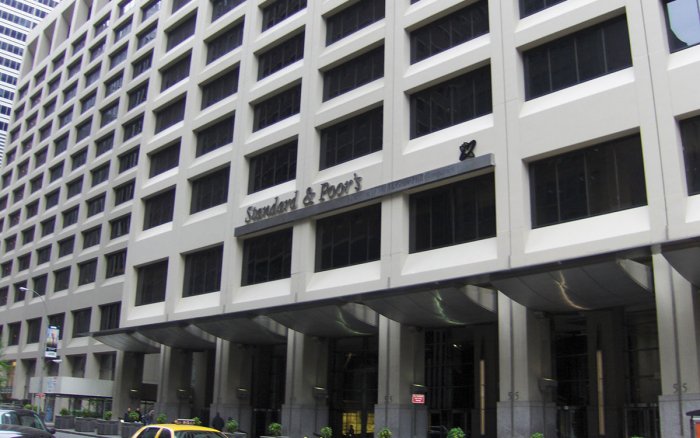Fitch Changes Outlook on Hungary BBB Rating to Negative

Fitch Ratings affirmed Hungary's BBB sovereign rating but changed the outlook to negative from stable at a scheduled review on Friday, according to a report by Hungarian news agency MTI.
Fitch said higher global interest rates, volatile energy prices, and weakening demand in Hungary's key export markets are "exposing vulnerabilities stemming from a policy mix that is influenced by political considerations".
It also pointed to Hungary's high rate of inflation and said price caps have proved "ineffective", while monetary policy transmission is "being hampered" by targeted mortgage interest rate caps.
Fitch sees a "high probability" of delays in the disbursement of Hungary's European Union funding, because of "differing interpretations and political considerations". Although the direct impact of such a delay on mid-term growth and external finances would be "modest", Fitch said it "would raise further questions over policy credibility, highlight governance challenges and potentially hurt investor sentiment".
The rating agency expects GDP growth to slow to 0.4% in 2023 as declining real wages weigh on household consumption, while investment growth slows because of cuts in state spending, dearer credit, and higher raw materials prices.
According to the report, Fitch projects average annual inflation will reach 17.6% in 2023, peaking at around 25% in Q1 and remaining over 20% through H1. It sees nominal wage growth remaining "below but close to" inflation, increasing the risk of a wage-price spiral.
Addressing energy supply risks, Fitch said Hungary is "well positioned" to get through the 2022/23 winter, but warned that energy supply risks could re-emerge ahead of the 2023/24 heating season.
Fitch forecasts the budget deficit will narrow to 4.3% of GDP in 2023, a little over the 3.9% government target. Fiscal support for regulated household utilities prices earmarked in the amended 2023 budget comes to 3.4% of GDP, but the cost of those subsidies could be lower than projected given recent falls in gas prices, Fitch said.
Fitch expects Hungary's state debt, relative to GDP, to continue decreasing from an expected 73.5% in 2022.
The rating agency said it expects the National Bank of Hungary (MNB) to "gradually" lower the 18% O/N deposit rate to the level of the 13% base rate, and to "slowly" start easing monetary conditions from the end of Q2 2023, but it still puts the base rate in the double digits at year-end.
Fitch augurs an improvement in the current account as the deficit narrows from an estimated 6.8% of GDP in 2022 to 3.3% of GDP in 2024.
A failure to address "concerns about macroeconomic policy credibility and governance" could expose Hungary to renewed periods of market stress or worsen macroeconomic imbalances, as well as an erosion in competitiveness leading to "materially lower" mid-term growth and a "sustained deterioration" in external finances could lead to a negative rating action, Fitch said.
"An improvement in governance and economic policy likely reflecting a combination of rule of law enhancements and a policy mix that will contribute to tackling existing imbalances and enhancing the credibility of macroeconomic policy" could lead to an upgrade, it added.
SUPPORT THE BUDAPEST BUSINESS JOURNAL
Producing journalism that is worthy of the name is a costly business. For 27 years, the publishers, editors and reporters of the Budapest Business Journal have striven to bring you business news that works, information that you can trust, that is factual, accurate and presented without fear or favor.
Newspaper organizations across the globe have struggled to find a business model that allows them to continue to excel, without compromising their ability to perform. Most recently, some have experimented with the idea of involving their most important stakeholders, their readers.
We would like to offer that same opportunity to our readers. We would like to invite you to help us deliver the quality business journalism you require. Hit our Support the BBJ button and you can choose the how much and how often you send us your contributions.








